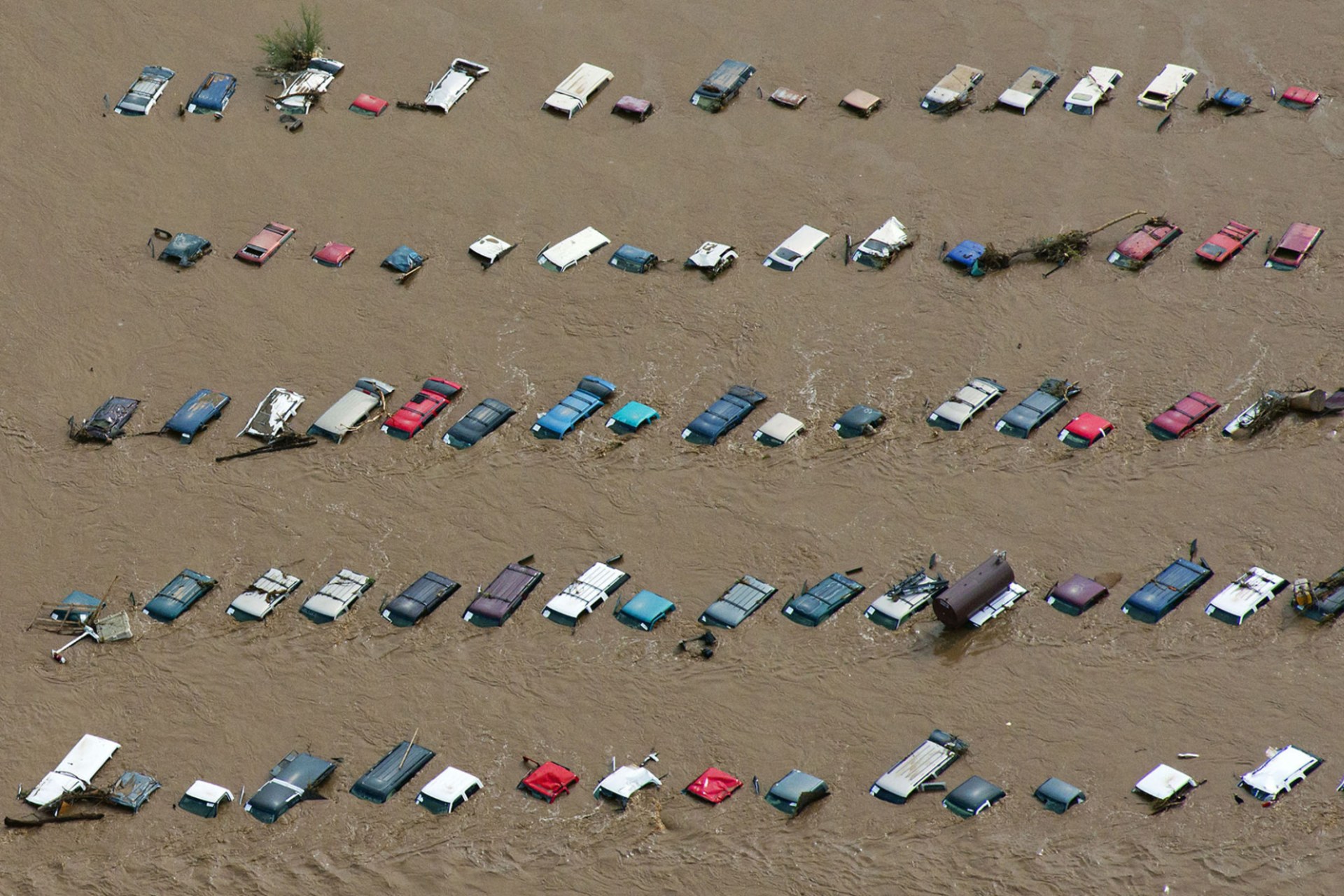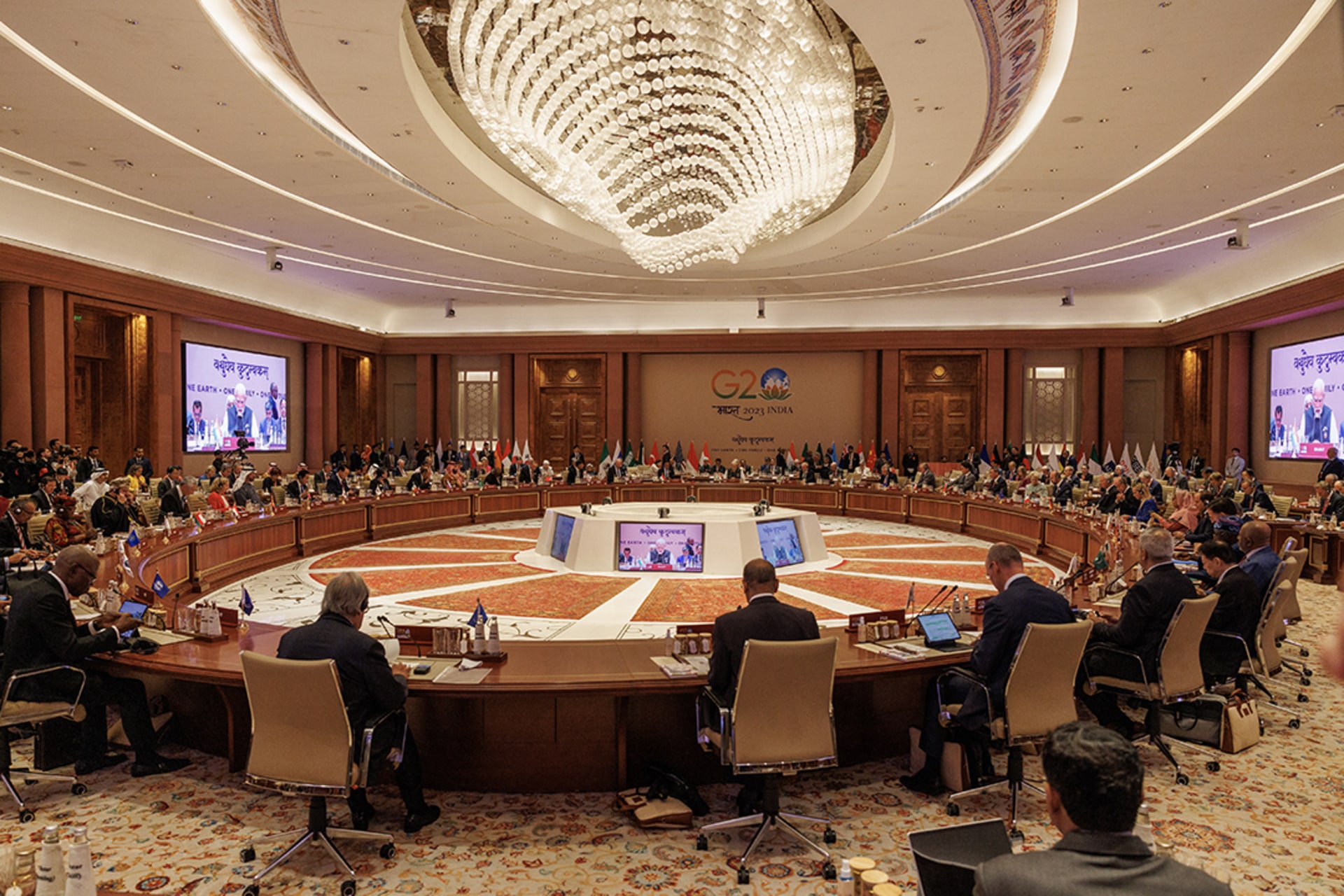IRAQ: Security Council Resolution
Published
This publication is now archived.
What’s caused the United States to seek a new Security Council resolution?
Casualties and costs of the occupation of Iraq are far higher than U.S. officials expected. A draft resolution being circulated at the United Nations by U.S. Secretary of State Colin Powell would reportedly boost U.N. authority in Iraq. In return, countries that have been reluctant to participate in the American-dominated mission in Iraq may be willing to contribute troops and money.
What is the situation on the ground?
“We need help,” says Lawrence J. Korb, director of National Security Studies at the Council on Foreign Relations. “We’re suffering casualties every day--almost 300 [soldiers] killed [since the start of the war], but also about 1,400 wounded--and we’re bearing about 90 percent of the cost.” A report issued September 3 by the Congressional Budget Office says that, at current occupation levels, the U.S. Army will run out of active-duty troops for use in Iraq by the end of March 2004.
What are the cost estimates?
About $1 billion per week, or a projected $50 billion next year, to maintain the U.S. military presence, according to an article in The Wall Street Journal. In March, the administration asked Congress for about $70 billion to underwrite the costs of fighting the Iraq war, plus $2.5 billion to start rebuilding the country; Congress approved that request. President Bush on September 7 announced that he would ask Congress for an additional $87 billion in emergency funding to help cover the costs of military operations and reconstruction in Iraq and Afghanistan.
The Pentagon has spent $705 million on oil-field repairs alone. The civilian administrator in Iraq, L. Paul Bremer III, has estimated that it will cost $2 billion per year to fix the electricity system and $4 billion per year to provide clean water. According to a Council on Foreign Relations independent task force report released before the war, reconstruction costs in Iraq could total some $20 billion per year for many years; recent estimates, taking into account postwar sabotage and theft, show that this figure might be conservative.
Who will pay for reconstruction and occupation?
At the moment, U.S. taxpayers are footing most of the bill. If Security Council members can agree on a resolution that in effect endorses the occupation and enlarges the U.N. role in Iraq, other nations may pitch in. U.S. officials are lobbying for international donations in advance of a donors’ conference in Spain in October. Sales of Iraq’s abundant oil supplies could eventually finance some of the costs of rebuilding and modernization.
What would the new resolution say?
According to press reports, the draft being circulated would recognize a significant role for the United Nations in Iraq, most likely in political and economic reconstruction, and authorize a multinational force under U.S. command. The resolution would also invite the Iraqi Governing Council to set a timetable for drafting a constitution and holding elections, eventually leading to the withdrawal of all foreign forces and the restoration of Iraqi sovereignty.
Will the Security Council pass a new resolution?
Chances of passage appear to be fairly good, though its terms are still under discussion. The administration is sending signals that it’s adopted a more conciliatory stance on the U.N. role in Iraq. And while some individual nations might press for concessions, some kind of resolution will likely win approval because “the United Nations wants to get back in the game,” Korb says. Sebastian von Einsiedel, senior program officer at the International Peace Academy in New York, agrees. “[The U.S. seeking a new resolution] reiterates the importance of the Security Council,” he says. “The U.S. may be able to go into Iraq alone, but they need the U.N. to get out of the mess they’re in.”
What conditions might other countries set for passage of the draft resolution?
France, Germany, and Russia--all three of which opposed the war--are reportedly pushing for language to restore Iraqi sovereignty and transfer political authority to the Iraqi people. French President Jacques Chirac, in a joint press conference with German Chancellor Gerhard Schroeder on September 4, said the main objective of the resolution should be “to transfer political responsibility to an Iraqi government as soon as possible.”
Why is restoring Iraqi sovereignty a priority?
Many countries question the legitimacy of the U.S.-run Coalition Provisional Authority (CPA). These nations want the United States to transfer control over Iraq from the CPA to an internationally recognized government under U.N. auspices. The new government would take over many of the stabilization and reconstruction efforts in Iraq, including setting a timeline for elections and awarding contracts for reconstruction projects.
Will the United States agree to these conditions?
We don’t know. Administration officials have dismissed past criticisms from the international community regarding U.S. activities in Iraq. But Korb says the pressure is building on the administration to bring the international community into the Iraq effort. President Bush “is too much of a practical politician not to do what’s needed,” Korb says. “Americans will be thrilled that we’re not footing the whole bill and our kids aren’t dying every day. With an election year coming up, [U.S. officials] don’t have a choice.”
How will a multinational force affect U.S. troop levels?
Not much initially, says Army Major General William L. Nash (ret.), director of the Center for Preventive Action at the Council on Foreign Relations. Some 140,000 U.S. soldiers currently serve in Iraq, alongside some 23,000 troops from more than 30 other countries. The United States is probably hoping to reduce its contribution to about 60 percent of the overall force, from about 90 percent now, Nash says. But, he estimates, it will be six to twelve months before any new influx of non-U.S. troops would arrive.
Which countries might contribute to a U.N.-approved multinational force in Iraq?
Many countries, including India, Pakistan, Japan, and Turkey. India has offered 17,000 soldiers to such a force. Some experts say that German U.N. diplomats have said privately that they wouldn’t be surprised if a year from now there were German troops in Iraq. Some Arab countries--Bahrain, for one--have also indicated a willingness to contribute. That is seen as a psychological bonus, because soldiers from Muslim countries are likely to be welcomed more warmly than Americans.
Is there any doubt that the force would be under U.S. command?
Not at the moment. When asked on August 25 if he could envision U.S. troops in Iraq fighting under U.N. command, Secretary of Defense Donald Rumsfeld said, “I think that’s not going to happen.” The United Nations is “woefully unprepared to wage war,” says von Einsiedel. It is “good at peacekeeping, but not the more robust missions that require enforcement.” In Bosnia, for example, the United States led the international coalition of troops but reported to the Security Council.
Why would other countries send troops?
Among possible reasons: to win favor with the United States, to ensure stability in the region, and to get a share of the lucrative contracts for rebuilding Iraq’s infrastructure.
Have there been disagreements within multinational forces in the past?
Yes, but they were not serious, says Nash, who served as both a military commander in Bosnia and as regional U.N. administrator in Kosovo. “The cooperation side of it is not near as difficult as people make it sound,” he says. “U.S. troops are never under foreign command. International forces cooperate on mutually agreed missions but don’t give up their capacity to object to specific actions.” In Bosnia, for example, Russian forces refused to hunt down alleged war criminals, but their nonparticpation was “not debilitating” to the overall mission, Nash says.
Are there models for a possible multinational force in Iraq?
Yes. Many experts say a possible outcome for Iraq is a division of labor between international groups and the United States, similar to the current set-up in Afghanistan. The United States would agree to a Security Council resolution authorizing a multinational force that would take over many political and economic reconstruction duties in Iraq, while leaving overall strategic command in U.S. hands. The United States would also keep a separate, independent military force to deal with security issues like running down terrorists.
How have U.N.-sanctioned multinational forces fared in the past?
The 1991 Gulf War was fought under a multinational force commanded by the United States. The 1999 Kosovo Force (KFOR) mission was widely seen as a successful model of international peacekeeping, and continues under the command of the North Atlantic Treaty Organization (NATO). The 2001 International Security Assistance Force (ISAF) in Afghanistan concentrated international forces in Kabul under a rotating command, which recently passed to NATO. The United States maintains a separate military force in Afghanistan for counterterrorism activities outside the capital. And the 1999 International Force for East Timor (INTERFET) was led by Australia, which stabilized the security situation before handing the country over to a U.N. transitional authority led by the late Sergio Vieira de Mello.t





